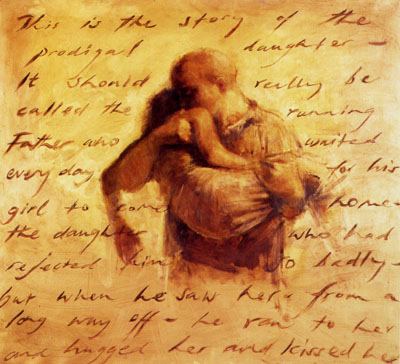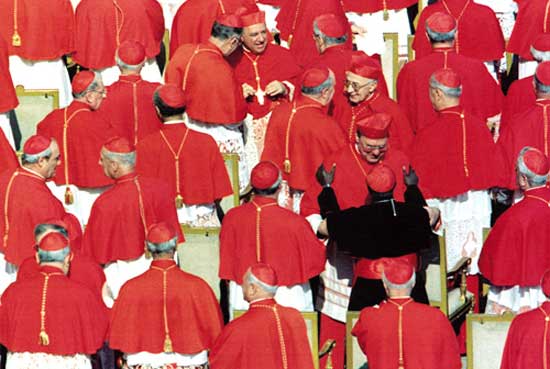 Below is a reworked version of a reflection I first presented at Cheltenham’s Week of Prayer for Christian Unity on 26th January 2008…
Below is a reworked version of a reflection I first presented at Cheltenham’s Week of Prayer for Christian Unity on 26th January 2008…
Now the tax collectors and “sinners” were all gathering around to hear [Jesus]. But the Pharisees and the teachers of the law muttered, “This man welcomes sinners and eats with them.” …
Jesus said: “There was a man who had two sons. The younger one said to his father, ‘Father, give me my share of the estate.’ So he divided his property between them. Soon after, that son got together all he had, set off for a distant country where he squandered his wealth in wild living.
After he had spent everything, there was a severe famine in that whole country, and he began to be in need. So he went and hired himself out to a citizen of that country, who sent him to his fields to feed pigs. He longed to fill his stomach with the pods that the pigs were eating, but no one gave him anything.
When he came to his senses, he said, ‘How many of my father’s hired men have food to spare, and here I am starving to death! I will set out and go back to my father and say to him: Father, I have sinned against heaven and against you. I am no longer worthy to be called your son; make me like one of your hired men.’
So he got up and went to his father. But while he was still a long way off, his father saw him and was filled with compassion for him; he ran to his son, threw his arms around him and kissed him. The son said ‘Father, I have sinned against heaven and against you. I am no longer worthy to be called your son.’But the father said to his servants, ‘Quick! Bring the best robe and put it on him. Put a ring on his finger and sandals on his feet. Bring the fattened calf and kill it. Let’s feast and celebrate.
The older brother was angry and refused to go into the house. So his father went out and pleaded with him. But he answered his father, ‘Look! All these years I’ve been slaving for you and never disobeyed your orders. Yet you never gave me even a young goat so I could celebrate with my friends. But when this son of yours who has squandered your property with prostitutes comes home, you kill the fattened calf for him!’ ‘My son,’ the father said, ‘you are always with me, and everything I have is yours. But we had to celebrate and be glad, because this brother of yours was dead and is alive again; he was lost and is found.'” – Luke 15:1-2, 11-32
Read more
 This week in the JP2 Group we will be beginning our study of the letters of St. Ignatius of Antioch, an Early Church Father who died in about 107 AD.
This week in the JP2 Group we will be beginning our study of the letters of St. Ignatius of Antioch, an Early Church Father who died in about 107 AD.
 The
The 








 I hadn’t planned to write about last weekend’s Gospel reading, but it has kept coming up in conversation and I’ve spoken to some people who have been really troubled by Jesus’ words, perhaps rightly so:
I hadn’t planned to write about last weekend’s Gospel reading, but it has kept coming up in conversation and I’ve spoken to some people who have been really troubled by Jesus’ words, perhaps rightly so: